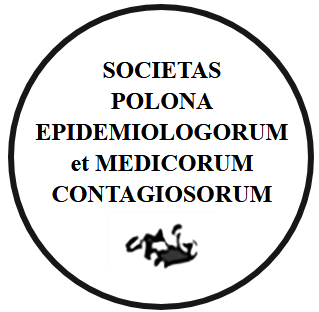RESEARCH PAPER
Assessment of behaviors related to smartphone use in the context of digital hygiene among medical students: A pilot study
1
Studenckie Koło Naukowe Zdrowia Publicznego
Zakład Zdrowia Publicznego, Warszawski Uniwersytet Medyczny
2
Zakład Promocji Zdrowia i Prewencji Chorób Przewlekłych, Narodowy Instytut Zdrowia Publicznego PZH - Państwowy Instytut Badawczy
3
Zakład Zdrowia Publicznego, Warszawski Uniwersytet Medyczny
Submission date: 2025-06-23
Final revision date: 2025-08-01
Acceptance date: 2025-08-12
Online publication date: 2025-09-22
Publication date: 2025-12-12
Corresponding author
Agnieszka Wasiluk
Zakład Promocji Zdrowia i Prewencji Chorób Przewlekłych, Narodowy Instytut Zdrowia Publicznego PZH - Państwowy Instytut Badawczy, ul. Chocimska 24, 00-791, Warszawa
Zakład Promocji Zdrowia i Prewencji Chorób Przewlekłych, Narodowy Instytut Zdrowia Publicznego PZH - Państwowy Instytut Badawczy, ul. Chocimska 24, 00-791, Warszawa
Przegl Epidemiol 2025;79(3):379-392
KEYWORDS
TOPICS
ABSTRACT
Background: Both in Poland and worldwide, an increase in the number of smartphone users has been observed. It is estimated that two-thirds of the global population uses them. Smartphones significantly enhance many aspects of daily life. However, it is important to be aware that improper use of these devices can lead to negative health effects, both mental and physical. Adhering to digital hygiene principles can greatly reduce the risk of various ailments, which will undoubtedly improve users' quality of life. Objective: The aim of the study was to assess behaviors related to smartphone use in the context of digital hygiene among medical students. Material and methods: The study was conducted with a diagnostic survey method. The technique used was a questionnaire, and the tool was a validated Digital Hygiene Self-Assessment Questionnaire developed by Bigaj and Woynarowska. The study group consisted of 71 individuals. Data analysis was conducted using Google Sheets, MS Excel, and SPSS software. Statistical analysis included Spearman’s rho correlation coefficient and the Mann-Whitney test. Results: Most respondents described their daily smartphone usage time as long. Just over 73% of those surveyed reported experiencing negative effects from using the device (n=52). The most common behaviors related to digital hygiene included limiting the number of notifications (n=28, 39.4%), deleting unused apps (n=25, 35.2%), and avoiding keeping the phone with them all the time (n=17, 23.9%). Conclusions: Extensive daily smartphone usage may have negative health implications. Respondents are aware of the fact that they use smartphones too frequently, and their digital hygiene habits pose health risks. Systematic educational initiatives are necessary to not only raise awareness of the issue but also provide users with practical methods for implementing digital hygiene principles related to mobile device use.
Share
RELATED ARTICLE
We process personal data collected when visiting the website. The function of obtaining information about users and their behavior is carried out by voluntarily entered information in forms and saving cookies in end devices. Data, including cookies, are used to provide services, improve the user experience and to analyze the traffic in accordance with the Privacy policy. Data are also collected and processed by Google Analytics tool (more).
You can change cookies settings in your browser. Restricted use of cookies in the browser configuration may affect some functionalities of the website.
You can change cookies settings in your browser. Restricted use of cookies in the browser configuration may affect some functionalities of the website.





